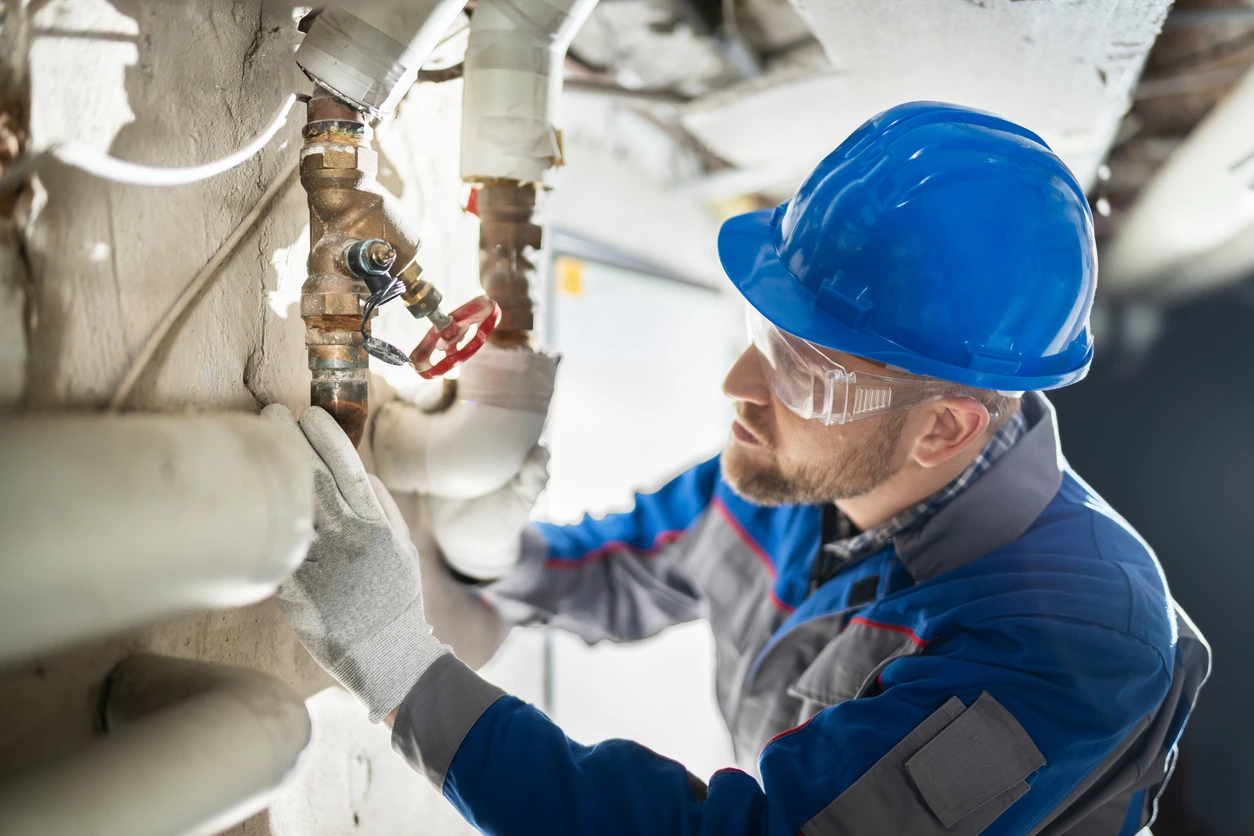
FAQ’s
Get answers to your plumbing questions from trusted local plumbers. Our FAQ page covers leak detection, emergency services, and more!
Leak Detection and Repair
How do I know if I have a hidden leak in my home?
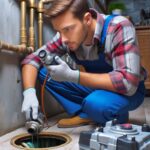
asdasdA hidden leak in your home can often be detected by unexpected increases in your water bill, unexplained damp spots on floors or walls, or the sound of running water when no fixtures are in use. Hiring trusted local plumbers for a water leak detection service can help locate leaks quickly before they cause significant damage. In Philadelphia, professionals use advanced tools like thermal imaging or acoustic sensors to pinpoint the source of leaks.
What are the most common signs of a plumbing leak?

Common signs of a plumbing leak include water stains on ceilings or walls, low water pressure, mold or mildew growth, and the presence of a musty smell. Slow drainage or the constant sound of dripping water might also indicate an issue. For plumbing services in Philadelphia, it’s essential to address these problems early by contacting a local plumber to prevent further damage.
Can plumbing leaks cause mold and structural damage?
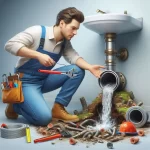
Yes, plumbing leaks can lead to both mold growth and structural damage. Mold thrives in damp environments and can spread rapidly when there is a persistent leak. Prolonged moisture exposure can weaken the structural integrity of your home, causing wood rot and other issues. Prompt leak detection and repair services from a trusted local plumber can prevent costly repairs and health risks due to mold.
How can I fix low water pressure in my home?
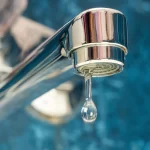
Low water pressure can be caused by a variety of issues, including clogged pipes, leaks, or corroded plumbing. First, check if the problem is isolated to a specific fixture or if it affects the entire home. For complex issues, hiring a local plumber near me to perform a thorough inspection and repair service can restore optimal pressure. In some cases, pipe replacement may be necessary.
Should I repair or replace a leaking pipe?
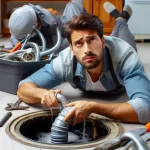
Whether to repair or replace a leaking pipe depends on the extent of the damage, the age of the pipe, and the material used. Small, isolated leaks in newer pipes may be fixable, but if the pipes are old or corroded, replacement is often the better option. A licensed plumber in Philadelphia can assess the condition of your plumbing and recommend the best solution for your home, ensuring you avoid recurring leaks.
How much does professional leak detection cost?
The cost of professional leak detection varies depending on the size of your home and the complexity of the problem. On average, it ranges from $150 to $500. For trusted local plumbers in Philadelphia, prices may also depend on the equipment used, such as thermal imaging cameras or acoustic sensors. It’s always a good idea to get quotes from multiple plumbing services to ensure competitive pricing.
Water Heater Installation and Repair
What causes drains to clog frequently?
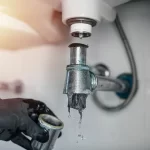
Frequent clogs are often caused by a buildup of debris such as hair, soap scum, grease, and food particles. In kitchens, grease and food waste are common culprits, while in bathrooms, hair and soap can accumulate in the pipes. Over time, these substances narrow the passage, leading to blockages. Regular drain cleaning services in Philadelphia can help address these recurring issues and keep your plumbing system flowing smoothly.
How often should I schedule professional drain cleaning?
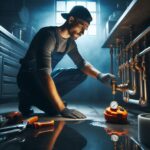
It’s recommended to schedule professional drain cleaning at least once a year to maintain optimal water flow and prevent blockages. However, if you frequently experience slow drains or backups, you may need to schedule cleanings more often. Trusted local plumbers near me can assess your system and create a cleaning schedule tailored to your needs.
Can I use store-bought drain cleaners for clogs?
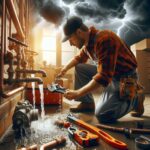
While store-bought drain cleaners might offer a temporary solution for minor clogs, they can also damage your pipes over time, especially if used frequently. Many of these cleaners contain harsh chemicals that can erode the pipe material. For long-lasting results and to avoid damaging your plumbing, it’s best to rely on a trusted local plumber for professional drain cleaning services.
What are the signs that I need a drain cleaning service?
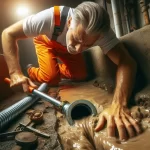
Signs that you need a drain cleaning service include slow drainage, water backups, foul odors from your drains, and gurgling noises in your pipes. Ignoring these issues can lead to larger blockages and potential water damage. If you notice any of these signs, contact a local plumber in Philadelphia to schedule a professional cleaning.
How can I prevent future clogs in my drains?
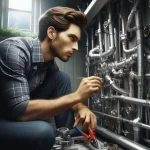
To prevent future clogs, avoid disposing of grease, food particles, and other debris down the drain. Installing drain strainers in sinks and showers can catch hair and debris before they enter the pipes. Regularly scheduling drain cleaning near me with a professional plumber can also help maintain your system and prevent future issues.
Is drain cleaning necessary for both kitchens and bathrooms?
Yes, drain cleaning is essential for both kitchens and bathrooms, as these areas are prone to different types of blockages. Kitchens often experience clogs from grease and food particles, while bathrooms are more susceptible to hair and soap buildup. Regular maintenance by a trusted local plumber ensures that both areas remain clog-free and functional.
Fixture Upgrades
What are the benefits of upgrading plumbing fixtures?
Upgrading your plumbing fixtures can lead to increased energy efficiency, reduced water usage, and improved aesthetics in your home. Modern fixtures, such as water-saving fixtures, help lower utility bills by conserving water. Additionally, new fixtures often provide better functionality, enhancing the overall experience in kitchens and bathrooms.
How can I choose the best water-saving fixtures for my home?
When selecting water-saving fixtures, look for products with the WaterSense label, which certifies that the fixture meets EPA standards for efficiency. Consider low-flow faucets, showerheads, and dual-flush toilets to reduce water usage without sacrificing performance. A trusted local plumber can help you select fixtures that suit your home’s needs and save on utility costs.
Are modern fixtures compatible with older plumbing systems?
In most cases, modern fixtures are compatible with older plumbing systems, but some adjustments may be necessary. It’s important to consult with a local plumber to ensure proper installation and avoid potential issues. Older systems may require upgrades to support newer energy-efficient fixtures.
Will upgrading fixtures improve my water pressure?
Yes, upgrading to modern plumbing fixtures can improve water pressure, especially if your current fixtures are outdated or clogged. However, if low water pressure is due to underlying issues in your plumbing system, such as leaks or blockages, it’s best to have a trusted local plumber assess the situation before upgrading.
How do I know if my fixtures need to be replaced?
Signs that your fixtures need replacing include visible wear and tear, corrosion, leaks, or decreased water efficiency. If your current fixtures no longer meet your needs or are outdated, consider upgrading to energy-efficient fixtures that can save you money in the long run. Consult a trusted local plumber near me to evaluate whether replacement is necessary.
Pipe Installations
How long do plumbing pipes typically last?
Plumbing pipes have varying lifespans depending on the material. Copper pipes typically last 50-70 years, while PVC pipes can last indefinitely if properly maintained. PEX pipes generally have a lifespan of around 40-50 years. Regular inspections by a trusted local plumber can help determine the condition of your pipes and prevent unexpected failures.
What types of pipes are best for residential installations?
The best pipes for residential installations depend on your home’s plumbing needs. Copper pipes are durable and resistant to corrosion, making them ideal for long-term use. PEX pipes are flexible and easy to install, making them a popular choice for modern homes. PVC pipes are also a cost-effective option for drain lines. Consulting with a local plumber can help you choose the best type for your specific needs.
How much does it cost to install new pipes in my home?
The cost of installing new plumbing pipes varies based on factors like the material used and the size of the project. On average, homeowners can expect to pay between $4,000 and $15,000 for a full repipe. Costs may increase if you choose high-quality materials like copper pipes, but a trusted local plumber near me can provide a detailed estimate tailored to your home.
How can I tell if my old pipes need replacement?
Signs that your pipes may need replacement include frequent leaks, discolored water, low water pressure, or visible corrosion. If your home has older plumbing, a professional plumbing service Philadelphia can assess whether repiping is necessary and recommend the best course of action.
What’s the process of repiping a house?
Repiping involves replacing old or damaged pipes with new ones, often using PEX or copper pipes. The process starts with a detailed inspection, followed by removing old pipes and installing new ones throughout the home. Depending on the size of the house, repiping can take several days to complete. A trusted local plumber will ensure minimal disruption to your daily routine during the process.
Kitchen and Bathroom Remodeling
How much does it cost to remodel a kitchen or bathroom?
The cost to remodel a kitchen typically ranges from $15,000 to $50,000, while bathroom remodels can range from $10,000 to $30,000. Factors influencing these costs include the size of the space, the quality of materials chosen, and the complexity of the plumbing changes required. Hiring a trusted local plumber can help you get a precise estimate based on your specific project needs.
How do I plan a plumbing layout for my remodel?
Planning a plumbing layout involves determining the optimal placement of fixtures, pipes, and drainage systems. Start by sketching your desired layout, ensuring that all plumbing meets local building codes. Consider working with a local plumber to ensure that your layout maximizes water flow and minimizes potential future issues. Their expertise will help you avoid costly mistakes during your remodel.
What plumbing upgrades should I consider during a remodel?
During a kitchen or bathroom remodel, consider upgrading to water-efficient fixtures, such as low-flow toilets and faucets, which can significantly reduce water usage. You might also want to install modern piping materials, like PEX, for better durability and flexibility. Consulting with a trusted local plumber can help identify additional upgrades that enhance both functionality and efficiency in your home.
Can I move the location of plumbing fixtures in a remodel?
Yes, you can move plumbing fixtures during a remodel, but it can be more complex and expensive. Relocating sinks, toilets, or showers involves rerouting existing pipes and ensuring proper drainage. It’s crucial to work with a local plumber to assess feasibility, costs, and compliance with local codes, ensuring your remodel goes smoothly.
What are the common plumbing issues during a renovation?
Common plumbing issues during renovations include unexpected leaks, outdated plumbing that doesn’t meet current codes, and the need for additional drainage solutions. Improperly installed fixtures can also lead to leaks or drainage problems later on. Hiring a professional plumbing service Philadelphia can help you address these issues proactively, ensuring a successful remodel without costly surprises.
Commercial Plumbing Services
How do commercial plumbing needs differ from residential?
Commercial plumbing needs differ significantly from residential plumbing primarily due to the scale and complexity of systems required. Commercial properties often have larger plumbing systems, including multiple bathrooms, kitchens, and heavy-duty fixtures designed to handle higher usage volumes. They also need specialized equipment, like grease traps and backflow prevention systems, to comply with health regulations and ensure proper waste management. A trusted local plumber experienced in commercial plumbing is essential for navigating these complexities and ensuring compliance with local codes.
What maintenance should be done for commercial plumbing?
Regular maintenance for commercial plumbing includes routine inspections of pipes, fixtures, and drainage systems to identify potential issues before they escalate. This may involve cleaning grease traps, checking for leaks, and inspecting water heaters and sump pumps. Scheduling professional drain cleaning and conducting backflow tests are also crucial for preventing clogs and ensuring the safety of the water supply. Engaging a local plumber for ongoing maintenance can help keep your plumbing systems in top shape and reduce the risk of costly repairs.
How often should I inspect the plumbing in a commercial building?
It is advisable to inspect the plumbing in a commercial building at least once a year, but more frequent inspections may be necessary for high-usage facilities like restaurants or hotels. Regular inspections help identify potential leaks, corrosion, and clogs before they become significant problems. A plumbing service Philadelphia that specializes in commercial properties can tailor inspection schedules based on the specific needs and usage patterns of your building.
What’s the best way to prevent major plumbing issues in commercial properties?
To prevent major plumbing issues in commercial properties, implement a proactive maintenance program that includes regular inspections and immediate repairs of minor issues. Encourage staff to report any unusual sounds or signs of leaks promptly. Installing high-quality fixtures and ensuring proper drainage systems are in place can also help mitigate risks. Partnering with a trusted local plumber for ongoing support and emergency services can further safeguard your commercial plumbing from significant problems.
Emergency Plumbing Services
How do I know if I need emergency plumbing services?
You should consider calling emergency plumbing services if you experience a significant leak, burst pipes, sewage backups, or any situation that poses a risk to your property or health. If you are unsure, it’s best to err on the side of caution and consult a professional.
How quickly can you respond to an emergency call?
Response times for emergency plumbing calls can vary based on the plumbing service provider and their availability. Many trusted local plumbers aim to respond within 30 minutes to 1 hour for urgent situations. It’s crucial to choose a plumbing service that offers 24/7 emergency support to ensure you receive timely assistance when you need it most.
What should I do if a pipe bursts in my home?
If a pipe bursts in your home, the first step is to turn off the main water supply to prevent further flooding. Locate your water shut-off valve, which is typically found near the water meter. After shutting off the water, turn on faucets to drain any remaining water in the pipes and minimize pressure. Next, call a plumbing service Philadelphia to report the issue and arrange for repairs. Document any damage for insurance purposes.
Can I shut off the water in an emergency, and how?
Yes, you can shut off the water in an emergency. Locate the main water shut-off valve, usually located near the water meter or where the water line enters your home. Turn the valve clockwise to shut off the water supply. If you’re unsure how to locate or operate the shut-off valve, refer to your plumbing service provider for guidance.
What should I do if my toilet overflows?
If your toilet overflows, first remove the tank lid and press down on the flapper valve to stop water flow. Alternatively, turn off the water supply valve located behind the toilet. Clean up any spills to prevent water damage, then contact a trusted local plumber for repairs. It’s important to address toilet overflows promptly to avoid damage and health hazards.
Are there any temporary fixes for a plumbing emergency?
For certain plumbing emergencies, temporary fixes can provide immediate relief until a professional arrives. For instance, you can use plumber’s tape or putty to seal minor leaks or use a bucket to catch dripping water. However, these are only stop-gap measures, and it’s important to follow up with a licensed plumber for a permanent solution.
What are the costs associated with emergency plumbing services?
Emergency plumbing service costs can vary widely based on the severity of the issue, the time of day, and the plumbing company. Expect to pay a premium for after-hours services, but keep in mind that addressing an emergency promptly can save you from more extensive and costly repairs later.
How can I prevent plumbing emergencies in my home?
Preventing plumbing emergencies involves regular maintenance and inspections of your plumbing system. Schedule routine checks with a trusted local plumber to identify potential issues before they escalate. Additionally, avoid putting foreign objects down drains, use strainers in sinks, and be mindful of your plumbing system’s age and condition.
Can I use DIY methods to handle plumbing emergencies?
While some minor plumbing issues can be addressed with DIY methods, it’s generally best to leave emergencies to professionals. Attempting to fix major issues, like a burst pipe or severe leaks, without proper knowledge and tools can lead to further damage. Always consult with a licensed plumber for significant problems.


 masterplumbersusallc@gmail.com
masterplumbersusallc@gmail.com